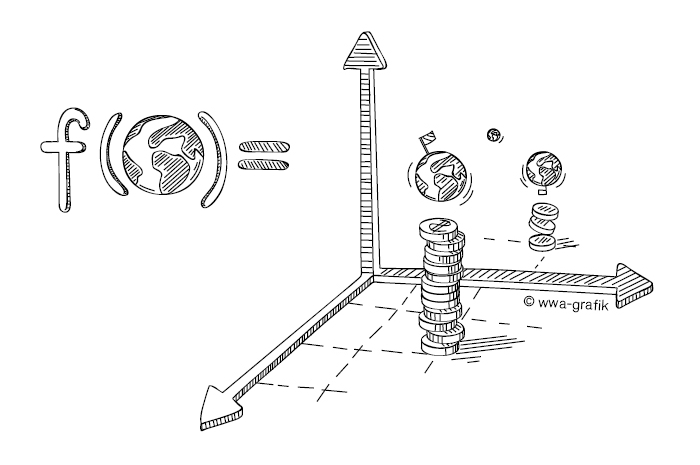We are very pleased that you are interested in studying Mathematical Finance at the University of Konstanz. Companies in the financial sector are constantly on the lookout for graduates with sound mathematics and economics expertise. The Mathematical Finance programme teaches you these skills and in so doing opens up excellent prospects for your future career.
What is Mathematical Finance?
Mathematical Finance deals with the analysis of financial markets. You learn to answer economics questions with modern mathematical techniques and analyse decision-making problems in the field of economics. The programme is similar to Business Mathematics or Financial Mathematics curricula at other universities.
The study programme is characterized by its interdisciplinary focus. It is run by the Department of Economics in cooperation with the Department of Mathematics and Statistics. This allows you to combine knowledge of finance and mathematics with economics and business administration. Transdisciplinary, profession-oriented transferable skills are also part of your studies.
The fifth semester is your mobility semester: Being free of compulsory courses means you can study abroad for a semester or do an internship in a company or complete a research placement in the department - or specialise further here in Konstanz.
The department has an excellent international network and regularly achieves top results in rankings. Studying Mathematical Finance thus opens up excellent career prospects.
External Page
To view this content (source: www.xyz.de ), please click on Accept. We would like to point out that by accepting this iframe, data could be transmitted to third parties or cookies may be stored.
You can find more information on our privacy policy .
How is the programme structured?
You start your studies in the winter semester. It is, however, possible to change subject or university in the summer semester too. Generally speaking, the programme lasts six semesters and is divided into basic studies lasting four semesters and advanced studies lasting two semesters. Whilst above all fundamentals are taught in the basic studies, the purpose of advanced studies is to deepen your knowledge of the subject and give you the opportunity through required electives to specialise in specific areas depending on your academic and professional goals. You complete the programme with the academic degree of Bachelor of Science in Mathematical Finance (BSc).
Examination regulations and course catalogue
- Examination regulations
- Course catalogue for BSc in Economics


